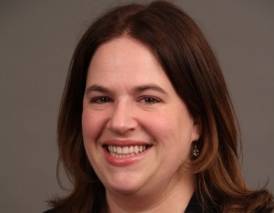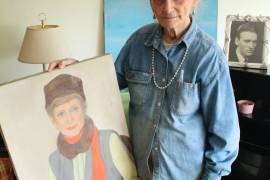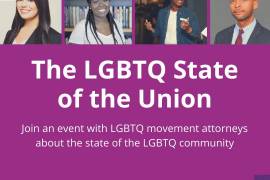
Making the Case for LGBT Seniors
Blog Search
Paul Mocko and Greg Patterson were together for 26 years and, in April 2014, they were married in San Francisco. Having met in San Francisco in the 1980s, the two men, like so many gay men of their generation, became HIV positive and were told to spend down their life’s assets because they were not expected to live very long.
When they survived, they had to rebuild their lives from scratch. Paul and Greg moved to Fort Lauderdale in 2009 as they prepared to take care of Greg’s mother, but the move was a struggle financially and they had to declare bankruptcy. They were living on limited income from Social Security and other benefits when Greg was diagnosed with stage four lung cancer.
In July 2014, just months after their wedding, Greg passed away. Because Florida did not respect their marriage at the time, when Paul received Greg’s death certificate, it said Greg was never married and in the section for spouse, it said “none.” After Florida’s marriage ban was struck down, Paul sought to get Greg’s death certificate amended, but he was told that he would not be able to get it corrected without a court order, which includes a filing fee of $401 and obtaining legal representation.
The State of Florida is requiring surviving spouses like Paul, who has experienced tremendous financial stress since losing both the love of his life and half of the couple’s joint income, to incur the expense, delay and burden of correcting Florida’s unconstitutional refusal to recognize their marriages on their spouses’ death certificates. We have filed a class action lawsuit on behalf of Paul, another client -- Hal Birchfield, whose husband and partner of more than forty years, James Smith, died in 2013, and other surviving same-sex spouses who need amended death certificates challenging Florida’s ongoing discrimination.
In addition to this kind of overt refusal to remedy past disrespect for the lawful marriages of same-sex couples, many LGBT seniors are struggling with the effects of marriage duration requirements on their ability to access benefits via their deceased spouses. Many of our clients with similar life stories to Paul and Greg or Hal and James were denied access to marriage rights for decades-long relationships, and were only finally able to marry shortly before the deaths of one of the spouse. We continue to advocate about the impact of conditioning pension or Social Security benefits on marriages lasting for particular periods of time on LGBT seniors. LGBT senior couples with intersecting identities, including poor and working-class people, people of transgender experience and people of color, are heavily affected by the denial of the benefits they and their partners earned.
Further, we continue to work for equal benefits for transgender spouses. In 2014, we fought the Social Security Administration (SSA) and won on behalf of Robina Asti, a transgender woman denied Social Security benefits after her husband’s death. This year, we are still fighting for an older transgender woman in Florida whose claim for survivor’s benefits has been denied because of a misapplication of transphobic state law. Not only is SSA misusing that case law, but after this June’s historic decision in Obergefell v. Hodges, any consideration of gender in determining the validity of a marriage is unconstitutional. In 2016, we will keep fighting for transgender seniors and families based on this clear principle.
Beyond spousal recognition, we’ve continued working for fair housing for LGBT seniors. We know that housing vulnerability and discrimination are a major issue for LGBT older adults, whether in general housing or seniors communities. In senior-specific settings, generational attitudes and low cultural competencies can lead to social isolation, harassment and discrimination, sometimes resulting in “re-closeting” by LGBT seniors. In nursing homes and assisted living settings, LGBT seniors often face overt harassment and discrimination not only from other residents, but and from staff on whom they rely for care. All over the country, we are actively working to address these concerns under both housing and health care non-discrimination laws.
Couples like Paul and Greg, and millions of other aging LGBT people in America, deserve to live and die with dignity. This year, next year and every year until we have justice, Lambda Legal is making the case for them.
Please join Lambda Legal today and help us fight for the rights of LGBT seniors! Your membership gift will be matched dollar for dollar by the $1.25 million matching challenge from the estate of John Barham and Dick Auer.




